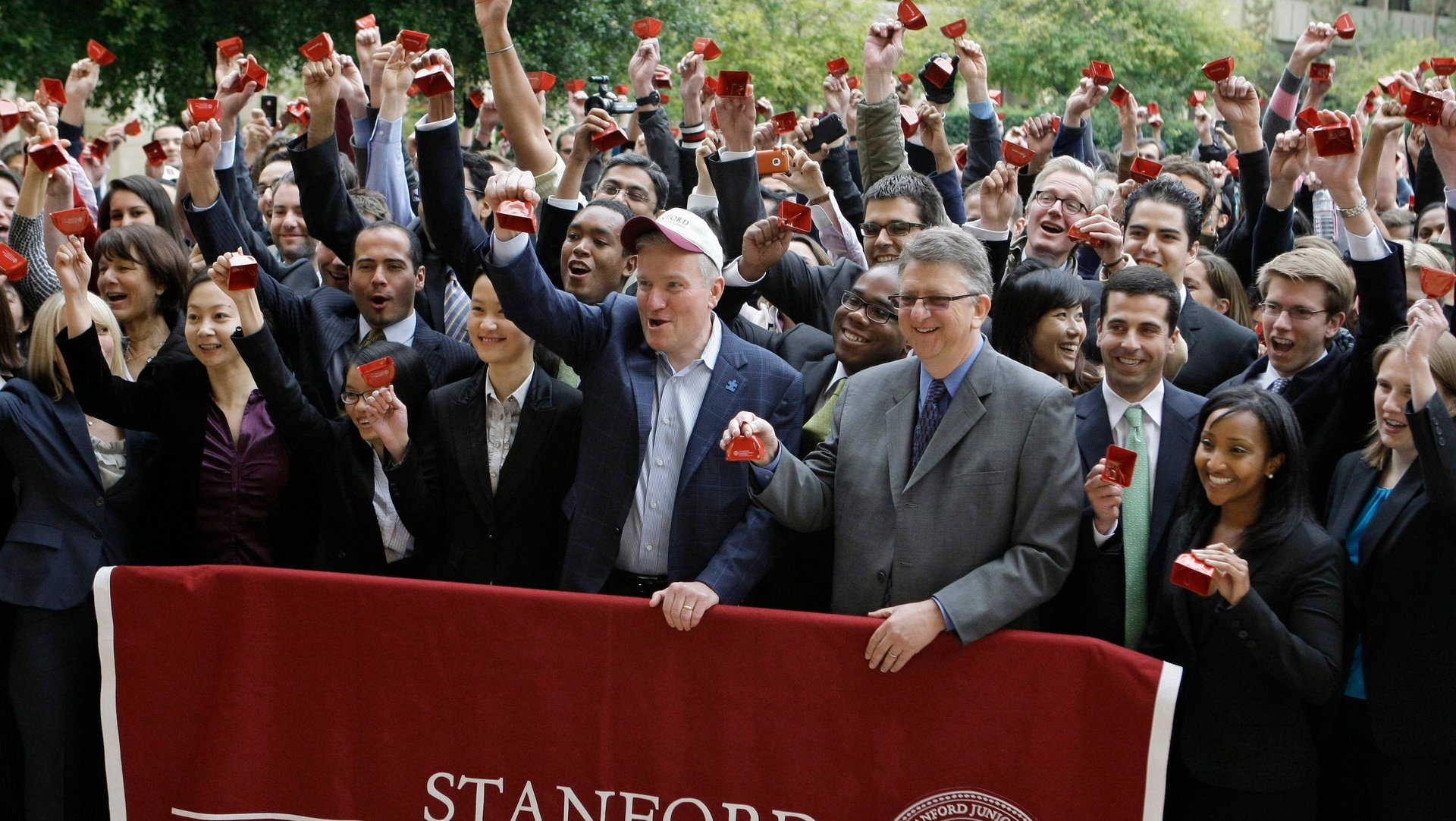Stanford’s business school is second in the US, but its new grads make the most money
Being number two still means quite a lot. Stanford Business School regularly ranks second on the list of US MBA programs—yet its alumni, including 244 active chief executive officers and four self-made billionaires, boast higher salaries one year out of school than graduates of other business schools. (Six to eight years out, Stanford MBA grads tie with Harvard grads for salary, averaging $285,000 a year.)


Being number two still means quite a lot. Stanford Business School regularly ranks second on the list of US MBA programs—yet its alumni, including 244 active chief executive officers and four self-made billionaires, boast higher salaries one year out of school than graduates of other business schools. (Six to eight years out, Stanford MBA grads tie with Harvard grads for salary, averaging $285,000 a year.)
Business school is often a lucrative venture, but why is a degree from Stanford particularly, and instantly, profitable?
It boils down to a few things, including the school’s overall brand name, its location in the expensive San Francisco Bay Area, its small class size—half that of Harvard—and its proximity to major Silicon Valley companies. But according to Bloomberg Businessweek, there’s another key reason that recruiters and employers heap money on Stanford grads: Attitude.
Stanford has a culture of encouraging students to be entrepreneurial and intrepid. Rather than settling for traditional business school success, students sometimes skip homework in order to pitch their startups to venture capitalists. “We have a culture where you are encouraged to do whatever you want, to explore the things you want to do that others may think is crazy,” Ross Pedersen, a 2016 grad who quickly snagged a vice president role at a hedge fund, then quit to join the US Army, told Bloomberg.
At most business schools, only 3% of students start a business after graduation. At Stanford, that rate of entrepreneurship is 16%. The school’s distinctive self-starting attitude is well known by companies looking to hire the most creative businesspeople.
It’s also clear from the start, on application materials. Harvard—regularly regarded as the United States’ number one business school—asks applicants to detail their “three most substantial accomplishments” and to describe how they’ll introduce themselves to their new classmates. The application for Stanford Business School opens with a much more playful question: “What matters to you, and why?”